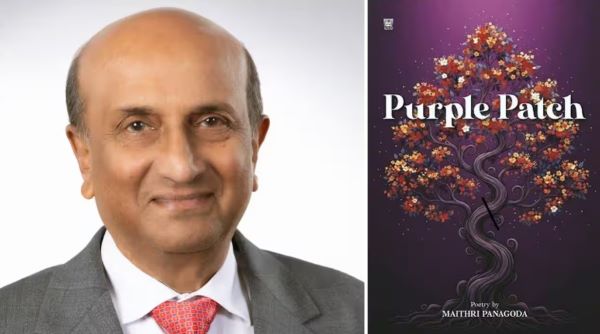Do Dietary Saturated Fats Increase the risk of heart disease?-By Dr Harold Gunatillake

Transcript:
At the onset, I would like to impress upon you that eggs and saturated fats have been slandered as bad for your good health and wellbeing of all humans.
Then research studies showed that cholesterol being a saturated fat, amounting to 373mg per egg, does not seem to raise cholesterol levels in the blood the way other cholesterol-containing foods do, such as trans fats and saturated fats.
An egg has 11 grams of fat, of which only 3.3g are saturated.
Repeating the role, dietary cholesterol as it relates to a person’s total blood cholesterol count appears to be smaller than previously thought.
Family history may have much more to do with your cholesterol levels than how much dietary cholesterol is in your food. The bigger threat to your cholesterol levels is food that is high in trans fats and saturated fats.
Today, you do not have to worry with no guilt to enjoy 2 eggs per day to a maximum of 6 per week.
It has been previously suggested that individuals with type 2 diabetes, or at risk, may need to limit their intake of eggs or dietary cholesterol intake, due to observational evidence of an association between higher egg intake-7 eggs/week (in most studies)) and an increased risk of cardiovascular disease While some evidence indicates a link, two recent observational studies in US and UK adults found no evidence of an association between dietary cholesterol or higher egg intake and CVD in individuals with pre-diabetes or type 2 diabetes.
On the other hand, one recent longitudinal study in Korean adults indicated an increased risk of CVD amongst individuals with type 2 diabetes who consumed more than 4.2 eggs per week.
It is our opinion, that so long as your diabetes is well controlled there is no harm eating as many eggs per week.
Dietary saturated fat is solid at room temperature, which is why it is also known as “solid fat.” It is mostly in animal foods, such as milk, cheese, and meat. …
Trans fat is a fat that has been changed by a process called hydrogenation, one should limit to a minimum its consumption, in readymade foods and frozen foods. They are made from vegetable oils
Unsaturated fats are predominantly found in foods from plants, such as vegetable
oils,
Eating saturated fat doesn’t increase the risk of heart disease or type 2 diabetes. However, partially replacing saturated fat with polyunsaturated fat may help reduce the risk of heart disease, especially in men.
Does saturated fat reduce heart disease, when it was believed for many decades, like eggs?
Eating higher amounts of saturated fat is linked to elevated low-density lipoprotein (LDL) or “bad” cholesterol, which increases risk of cardiovascular disease
The review found that cutting down on saturated fat led to a 21% reduction in the risk of cardiovascular disease (including heart disease and strokes) but had little effect on the risk of dying. The review found that health benefits arose from replacing saturated fats with polyunsaturated fat or starchy foods.
This is the diet- heart hypotheses theory, which states that saturated fat raises LDL or bad cholesterol in the blood, which then supposedly lodges in the artery and cause heart disease.
This hypothesis has never been proved, just handed over the mythical story and guidelines are based on this theory.
While the issue is still debated, numerous recent studies have found no link between saturated fat consumption and heart disease.
New studies have revealed that people who consumed more saturated fat were not more likely to experience heart disease. Stroke type 2 diabetes, or death from any cause, compared with those who ate less saturated fat.
Siri-Tarino and others evaluating the association of saturated fat with cardiovascular disease published in the American Journal of Clinical Nutrition in 2010. On studies included a total of 347,747 participants, followed for 5-23 years, and on the follow- up, about 3% of participants (11,006 people) developed heart disease or stroke.
Conclusion: This study didn’t find any association between saturated fat intake and cardiovascular disease.
There are many other similar studies, and none of them reveal that people with higher saturated fat intake were not at an increased risk of heart disease.
Furthermore, the researchers didn’t find any benefit to consuming polyunsaturated fats instead of saturated fats. Long-chain omega-3 fatty acids were an exception, as they had protective effects.
Coconut oil is about 90% saturated fat, which is a higher percentage than butter (about 64% saturated fat), beef fat (40%), or even lard (also 40%). Too much saturated fat in the diet is unhealthy because it raises “bad” LDL cholesterol levels, which increases the risk of heart disease.
This is belief is according to the mythical ‘Diet-heart hypotheses.
Coconut oil is “one of the worst foods you can eat” and is “pure poison”, a Harvard professor has said. In a speech at the prestigious American university, Dr Karin Michel’s warned against consuming it. The speech was called Coconut Oil and other Nutritional Errors.
What made this professor make this bold statement that coconut oil is ‘pure poison’ when coconut trees don’t even grow in the US, because they need the humidity and moisture of a tropical or subtropical environment to survive and thrive.
Sales of coconut oil have risen six-fold in the space of a decade in the UK and
similar trend in the US.
Medium chain saturated fatty acids are directly absorbed from the intestine and sent straight to the liver to be rapidly used for energy production. They do not aid in the biosynthesis and transport of cholesterol.
For this reason, some believe that coconut can decrease “bad” LDL cholesterol. But research has shown that coconut oil can raise your LDL cholesterol. One study found that coconut oil raised LDL cholesterol less than butter but significantly more than unsaturated plant oils.6
However, there is some potentially positive evidence regarding coconut oil and HDL levels. HDL cholesterol is “good” cholesterol. Some studies have found that consuming coconut oil can boost HDL levels. Researchers suggest that the HDL increase may be due to the high lauric acid and myristic acid levels in coconut.
The consensus today among most nutritionists is that eating saturated fat does not increase the risk of heart disease or type 2 diabetes.
This topic is controversial, but living in a tropical country like Sri Lanka, flavouring our curries with coconut milk squeezed from the scraped coconut meat, as a daily event, though being considered as having saturated fats, we are convinced that it is not a risk factor for heart disease.
Hope this video talk was useful Stay safe and Goodbye for now.
Disclaimer:
The information contained in this article is for general information purposes only, and whilst the author will endeavour to keep the information up to date and correct, eLanka makes no representations or warranties of any kind, express or implied, about the completeness, accuracy, reliability, suitability or availability with respect to the eLanka website or the information, products, services, or related graphics contained in this article for any purpose. Any reliance you place on such information is therefore strictly at your own risk. In otherwords, eLanka In no event will we be liable for any loss or damage including without limitation, indirect or consequential loss or damage, or any loss or damage whatsoever arising from loss of data or profits arising out of, or in connection with, the use of this website / article. Also please note that through this website / web page articles you are able to link to other websites which are not under the control of eLanka and therefore we have no control over the nature, content and availability of those sites. The inclusion of any links does not necessarily imply a recommendation or endorse the views expressed within them.




















